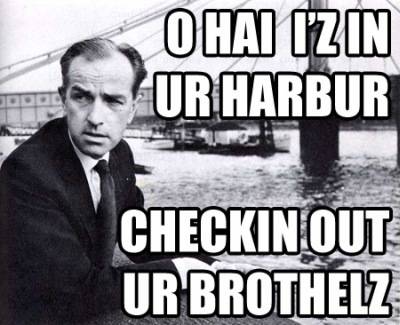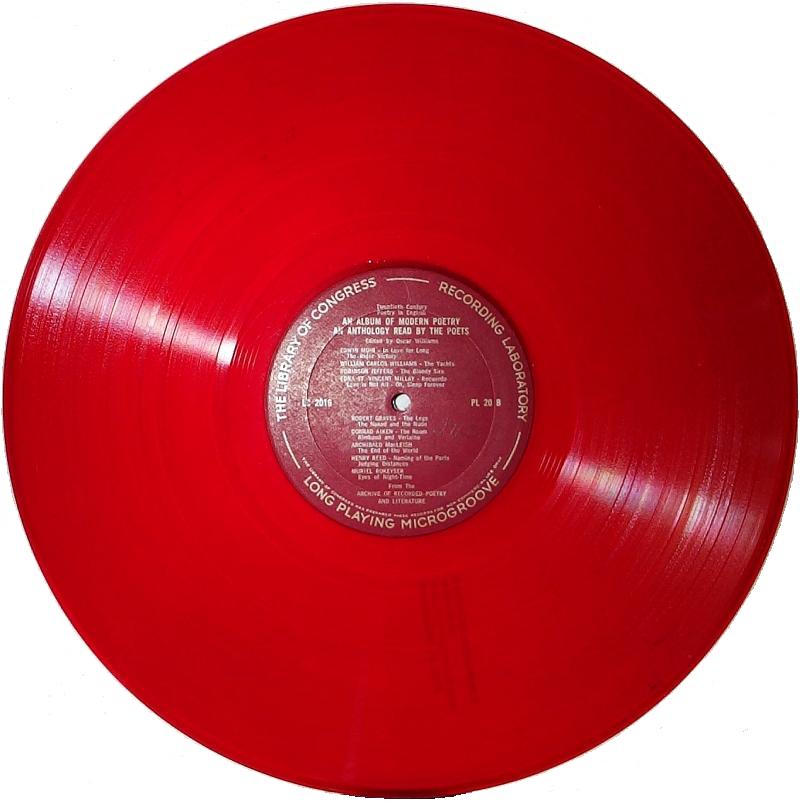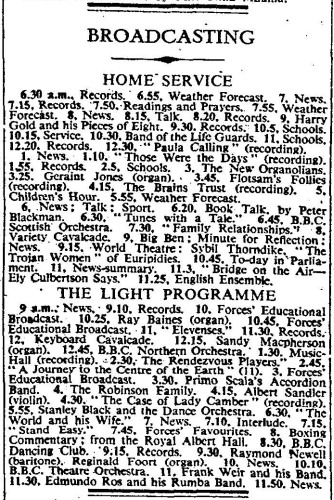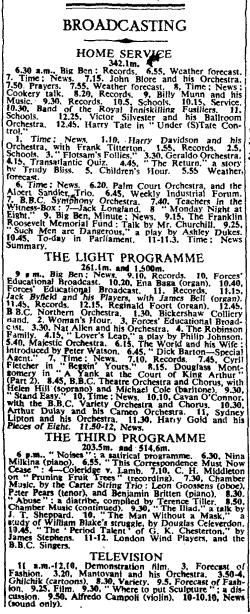Here you go: a synopsis of Henry Reed's poem, "Sailor's Harbour," translated into lolcat, image macro-format. A lolreed, if you will:
That about sums it up, I think. Also, I would like to point out, I totally had this idea before Chaucer's "I Can Hath Cheezburger?" post, but I waffled (or perhaps ROFL'd, if you prefer).
|
LOLReed, First in a Series
Transmission Intercepted, Hilarity EnsuesHey! BBC Radio 4 has a new half-hour situation comedy coming out. What's the premise, you ask? Well, it's about a wacky bunch of codebreakers stationed at Bletchley Park during World War II. How's that sound? The show is called "Hut 33," after one of the (fictitiously numbered) pre-fab buildings where the cipher-breaking and translation work was done. From the BBC's website:
Set in Bletchley Park, in 1941, this sitcom focuses on three code-breakers forced to share a draughty wooden hut as they try to break German ciphers. Unfortunately they bicker constantly. Archie, a Geordie socialist, must now work with Charles, the Tory snob who rejected him from Oxford for wearing brown shoes. Gordon, the child prodigy, tries in vain to act as peacemaker but they won't listen to someone who still wears short trousers. The program stars Robert Bathurst, Tom Goodman-Hill, Olivia Colman, and Fergus Craig. The show's author, James Cary, has a shot of a "memo" for the show on his blog, with pics. Unfortunately, I'm in a rather inconvenient time zone for casual listening, as the show will premiere at 11:30 a.m., BST, on Monday, June 25th.
Smithsonian SoundsOne of the things I really wanted to know, when I listened to Oscar Williams' Album of Modern Poetry (1959), was whether or not Reed's "Naming of Parts" was different than the other recordings I had already heard on other albums.
For instance, the Smithsonian Institution's Global Sound offers 99¢ downloads of audio samples and music from almost every country in the entire world; offering everything from tribal music to fiddle tunes, including spoken word records. It's an amazing cultural archive. One album in particular, Folkways' Anthology of 20th Century English Poetry (1961), has poetry by Reed and his contemporaries John Betjeman, Roy Fuller, Laurie Lee, C. Day Lewis, W.R. Rodgers, and Vernon Watkins. The liner notes for Part II (.pdf) state that these recordings were 'directed by V.C. Clinton-Baddeley, and made by Edgar A. Vetter at 22b, Ebury Street, London, S.W.1, Summer 1958' (Google Maps). I've listened to "Naming of Parts" on both the Anthology of 20th Century English Poetry and An Album of Modern Poetry, and I can safely report that they are definitely two different recordings. Not just different: the Smithsonian's copy of "Naming of Parts" is vastly superior in terms of tone, quality, and clarity. It does sound a bit like he's reading in an empty Tube station, but (in my opinion) Reed gives a more powerful performance on the Folkways' record. The track is only 99¢, and you can get the whole album for just $9.99. But you don't have to take my word for it. You can join Smithsonian Global Sound and listen for yourself, or just explore what they have to offer. A quick search for "poetry" brings up 59 albums, and 801 tracks!
All Good Things Go to TexasIn this week's New Yorker, "Final Destination" (printable article), an in-depth look at the collections and archives at the Harry Ransom Humanities Research Center of the University of Texas at Austin, and the unstoppable tide of authors' papers and manuscripts which end up there:
There is not much that other institutions can do when Texas is interested. After Osborne, Stoppard, Penelope Lively, and others sold their papers to Texas, the mass departure aroused alarm in Britain—a 2005 headline in the London Times proclaimed, 'writers unite to fight flight of literary papers to u.s.' To counter the Ransom Center, Britainís national-heritage fund changed a rule prohibiting public money from being spent on material less than twenty years old; the exclusion was reduced to ten years. The change barely diminished the flow of work across the ocean, however. Staley [the Center's current director] does not have much sympathy for the aggrieved. Last year, at a conference at the British Library, Staley was asked about an essay in which the British poet laureate Andrew Motion argued that national treasures belonged in the nations that created them. He retorted, 'Like the Elgin Marbles?' I know of at least four Reed-related items in the Ransom Center's archives: A 1944 letter from novelist Sid Chaplin to John Lehmann, calling Reed's "The End of an Impulse" in New Writing and Daylight 'the most sensible piece about modern poetry I have seen in a long time'; a 1945 typescript of one of Reed's BBC talks in the Elizabeth Bowen collection; a letter from Reed to Dame Edith Sitwell; and Sitwell's reply to Reed.
An Album of Modern PoetryLast September, I mentioned discovering a letter to Henry Reed in the collection of Oscar Williams' correspondence at the Lilly Library in Indiana. The letter was from Henry J. Dubester, and was among a group of letters addressed to British and American poets, including Auden, William Empson, Frost, Roy Fuller, Archibald MacLeish, Roethke, and Stephen Spender (amidst many others). I wondered, at the time, what Mr. Dubester was doing, writing to so many prominent poets?
Not long after, I received an e-mail from none other than Henry Dubester, himself, which answered my question. Mr. Dubester informed me: I was promoted and served as Assistant and then Chief of the General Reference and Bibliography Divisions of the Library of Congress. The Poetry Office was one of the sections of the Division. The Library also had a recording laboratory where recordings were made and preserved of many individuals, including poets. I had the opportunity of compiling a set of records with a selection from those recordings. Oscar Williams was my consultant who advised me on the selection. Following his advice, I contacted the poets and solicited their permission to include the text of their recorded poems with the (3) record album. Mr. Dubester is referring to the Library of Congress Recording Laboratory's An Album of Modern Poetry: An Anthology Read by the Poets (1959), a set of recordings of the best 20th-century poets reading from their own work, edited by Williams. My library actually owns these records, although I had to request them from the storage facility where they cache the more outdated or under-utilized materials. The library also possesses a spectacular media lab of its own, replete with soundproofed recording booths stuffed with just the right gear for analog-to-digital conversion. Which is? An ancient turntable plugged into a Mac. So I snuck away for an hour today, and lifted the tracks of "Naming of Parts" and "Judging Distances" from Williams' Album of Modern Poetry. The boxed set is three 12", 33 1/3 microgroove LPs, pressed into a vinyl the color of which there is no word for in English ("vermillion" does not adequately convey the records' ethereal translucence). As Mr. Dubester promised, the set includes a wonderful, 41-page printed anthology of the poems being presented by their authors, as well as an introduction from Oscar Williams on the box. And, I did enjoy a wonderfully surreal moment, when I heard Conrad Aiken's voice booming from the lab's speakers, repeatedly referring to Rambo, Rambo, Rambo, before I realized he was talking about Rimbaud. But, enough. 'This is Henry Reed, reading selections from his poems': "Naming of Parts" (.mp3) "Judging Distances" (.mp3)
Henry Reed on YouTubeSome enterprising soul has thoughtfully uploaded Robert Bloomberg's 1971 student film adaptation of "Naming of Parts" to YouTube.com:
First AppearancesIs this the humble beginning of Henry Reed's writing career with BBC radio?
Roger Savage, writing in the book British Radio Drama (1981), says Reed's first original writing for radio was a 1946 piece called Noises, produced first in a fifteen-minute version for an interlude between programs, and then extended to a full half-hour. Martin Armstrong, in The Listener, described the piece as a short essay on the psychology of noises in which noises were used to play, wittily and suggestively, on the imagination of the listener (November 28, 1946). British Radio Drama includes a bibliography of Reed's radio plays and the dates of their premieres—Noises is listed as having first aired on the BBC on March 4, 1946: As you can see, the only "Interlude" scheduled is a five-minute break on the Light Programme at 7:10 p.m., although there is a fifteen-minute "Forces' Favourites" at 7:45 which could be a candidate. The extended version of Noises which Armstrong reviewed for The Listener was broadcast later that year, on November 18, 1946, at 6:00 p.m. By that time, the Third Programme had been created, and the piece had earned a subtitle (as many of Reed's plays would) "A satirical programme": Unfortunately, in some books the play is also listed as Noises On (as in the opposite of "noises off-stage"), and the longer version as Noises—Nasty and Nice, causing me all sorts of difficulties in searching and pinning down dates and times.
Radio Plays by Henry ReedWorking from the (somewhat incestuous) bibliographies in British Radio Drama, Contemporary Authors, Contemporary Poets, and The Dictionary of National Biography, here's a nearly complete list of Henry Reed's writing for radio, including his translations from French and Italian (but not his talks or criticism):
|
||||||||||||||||||||||||||||||
|
|
|||||||||||||||||||||||||||||||












